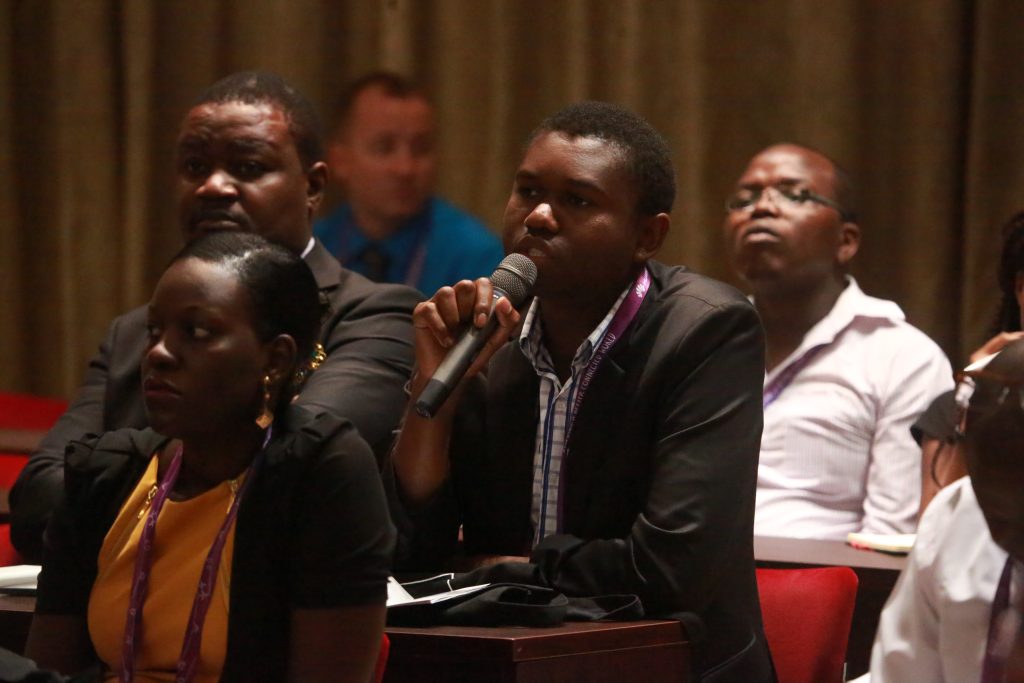Despite an increasing body of evidence in the efficacy of mHealth in driving health outcomes, many mHealth projects particularly in the developing world continue to find it difficult to scale beyond the pilot stage. There have been many reasons put forward for this; among them are government support, physician acceptance, user adoption and last, but not least, adequate incentives for participation from the private sector.
At the GSMA, we articulate these incentives for mobile operators and enable them to take the lead in mHealth projects with the overall objective of achieving the Sustainable Development Goals for health. In the past few years, we have helped operators understand the opportunity around mHealth, and have supported them in brokering partnerships with the health sector, which in turns improves the relevance of their mHealth products and services. In the last year, we have supported the launch of services in Nigeria, Ghana, Tanzania and Malawi in the area of Nutrition (with another four more markets targeted in the next year), and currently reaching over half a million people with nutrition content in these countries.
I had the unique opportunity to discuss the challenges for reaching scale in mHealth direct-to-consumer messaging services in Asia and Africa on a panel at the GSMA Mobile 360 – Africa event. The panel featured Sara Chamberlain of international development agency, BBC Media Action, in India, who has been leading two mHealth services – Mobile Academy (a mobile-enabled training course) and Kilkari (a health messaging service) currently being scaled nationally in India.
Also on the panel was Janita Ferentinos of the mHealth Tanzania Public Private Partnership, who has been leading the Wazazi Nipendeni mHealth service in Tanzania. Both share impressive adoption numbers, but have adopted different strategies to scale the service. The panel highlighted different ways to approaching the issue of funding what is essentially a free service. It also showed different approaches to engaging with mobile reflecting different market conditions in each country.
The interactive panel session attracted a diverse crowd from the wider mobile ecosystem attending Mobile 360 – Africa.
Janita’s approach speaks to the core of how one creates and sustains public-private partnerships with multiple private sector partners and involvement with multiple government parties. The Wazazi service covers a whole range of topics from maternal and child health and nutrition as well as reminders for doctors’ appointments. The government assumes overall ownership of the service, which offers a degree of credibility and alignment with national health programmes. Private sector partners join in to cover various elements of operational costs, and all major operators are covering connectivity costs from their own network. Due to the success of the Wazazi marketing campaign, private sector partners benefit from the positive association with the service. Mobile operators, in particular, have reported measured improvements in retention due to ongoing engagement with the service.
BBC Media Action’s approach, on the other hand, is a useful lesson in developing a business-to-government (B2G) model for continued sustainability. Starting from a chargeable service offered across multiple operators, the success of the model has prompted the government to move to a free direct-to-consumer (D2C) model and using a single operator to deploy the services across the nation. A single operator model has the benefit of providing an attractive incentive for operators to compete for an enterprise contract with the federal government to deliver content services nationally, which brings down cost for the government while demonstrating the possibilities of B2G models in mobile-enabled health messaging to the operator community.
Among other factors, the above have helped propel both services beyond some of the challenges facing most mHealth services today. Kilkari currently makes calls to 1.24 million families every week, and Wazazi has reached 1.5 million registrations since its inception in 2012.
To ascertain best practices and share lessons with the mHealth community, the GSMA is working with a multitude of services featuring different approaches towards content bundling, service design and business models, including consumer-pay mHealth services as an alternative route to monetisation. Please stay tuned to upcoming blogs and publications as we profile in greater detail both the above and other services, and in doing so contrasting different routes to scale, along with the opportunities and challenges they face along the way.


